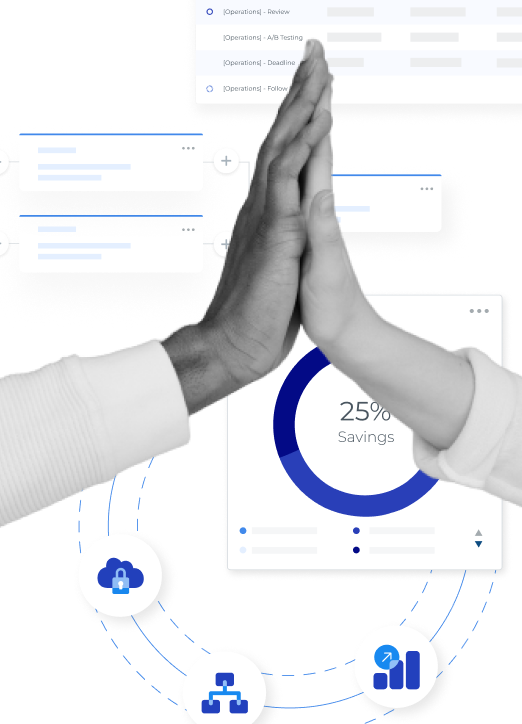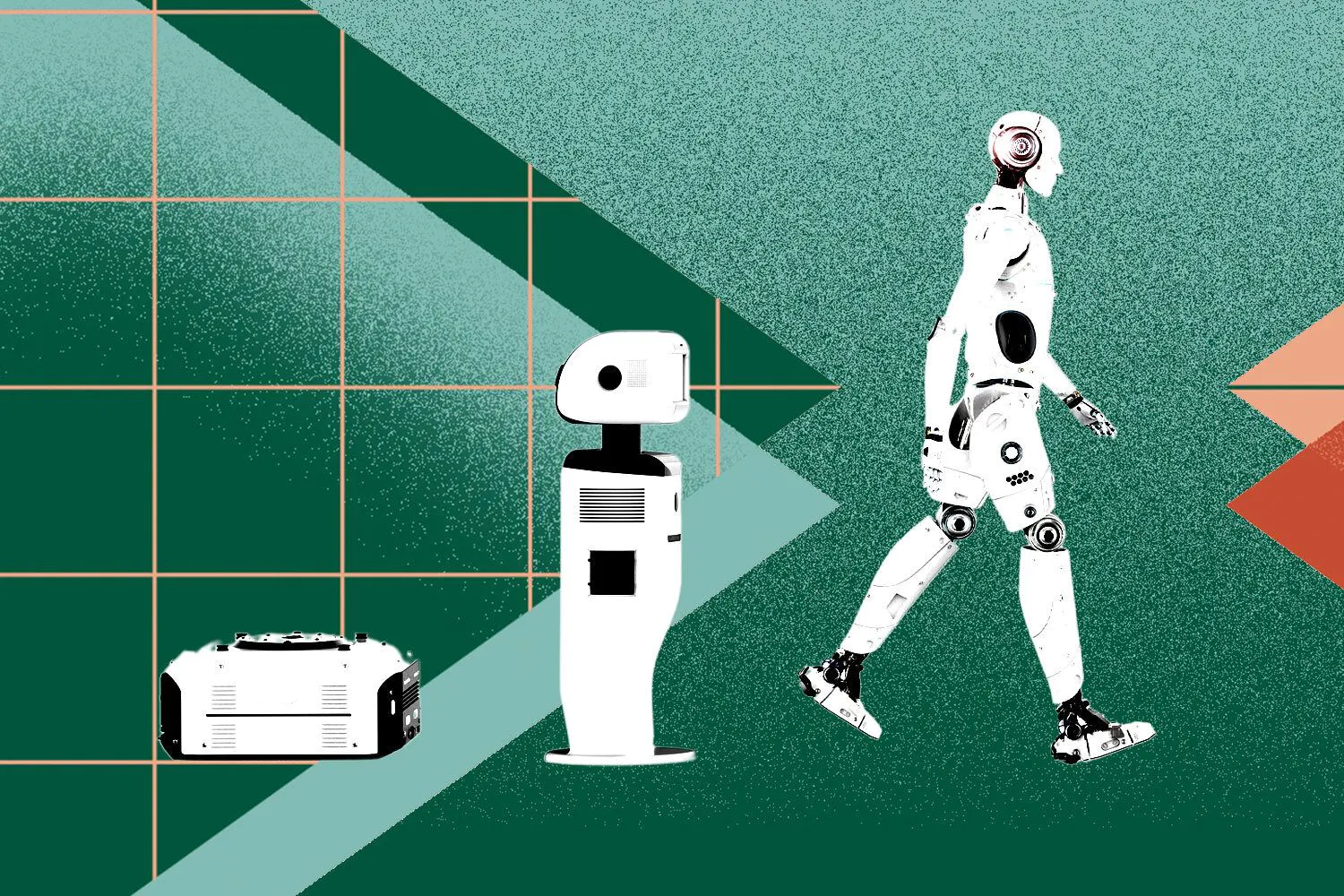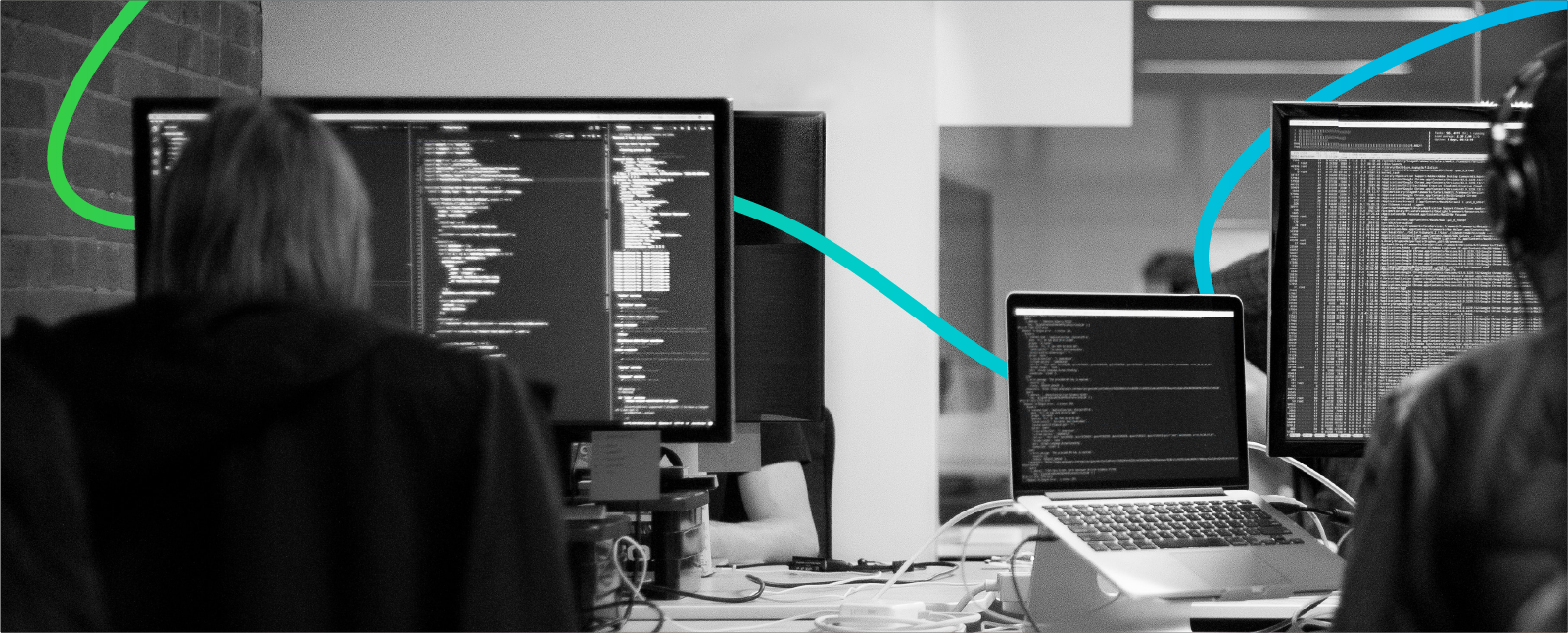The first thing I would say every entrepreneur needs is to believe that everything happens for a reason. I have encountered various challenges throughout the years, but really believing in this concept has kept me humble during the high times and focused during the lows.
John Winner is the co-founder and CEO of Kizen, a next-gen business platform that helps companies grow faster and work smarter now by leveraging cutting-edge technologies like intelligent automation and AI. John started his first of 5 companies at just 13. Before Kizen and while he was still in college, John founded and served as CEO of Scientific Marketing Group, which helped generate millions in revenue for enterprise companies, rapid-growth startups, and Main Street businesses.
Thank you so much for joining us in this interview series! Before we dive in, our readers would love to “get to know you” a bit better. Can you tell us a bit about your ‘backstory’ and how you got started?
Absolutely and thank you for including me 🙂 I was born and raised in South Florida. My dad is a very successful neurologist still to this day, and growing up, he and my Mom always told me how important it is to put effort into education and try to control my own destiny by learning business. Hearing that advice that early on really instilled in me an entrepreneurial spirit, and is probably one of the big reasons I’ve been founding companies since I was 13.
What was the “Aha Moment” that led to the idea for your current company? Can you share that story with us?
One of the five companies I’ve founded over the years was one I started with my good friend Scott Turner. When Scott and I were getting our bachelor’s degrees at The University of Texas at Austin, we decided to formalize the consulting work we were doing for businesses into a full-service marketing and business consulting team called Scientific Marketing Group. We were confident we could help businesses sustainably grow because we had done it before and saw the value of being very data-focused.
We started Scientific Marketing Group in 2010 when the tech was exploding. And across all of our customers – our biggest was 3M – we were seeing them use anywhere from 10–50+ different pieces of technology that weren’t working well together and weren’t intuitive. The technology was getting in the way, critical data was totally disconnected, and the technology was actually deepening the silos that exist in a business. It was a huge productivity killer and a barrier to next-gen technologies like automation and AI. It was also causing businesses to waste incredible amounts of time, money, and energy.
I remember Scott and I having many conversations with one another about what would be possible from an impact point of view if every team and business had easy access to every cutting-edge technology. That was our “aha” moment and our inspiration behind creating Kizen.
In your opinion, were you a natural-born entrepreneur, or did you develop that aptitude later on? Can you explain what you mean?
This is a really interesting question because I love the psychology around nature vs. nurture.
I think I’m naturally a very focused and determined person. Funny story to illustrate that: I was told that when I was 3 I was given a little golf playset and a watch for Christmas. Then when my grandfather asked me “What time is it?” I told him, “it’s time to go play golf, Poppy!”
So I’m not sure how I had that response so young.
In addition, I received so much encouragement from my parents and mentors growing up to encourage me to understand business. I believe that we’re born being a beginner at everything, and then we learn the skills we need from there. I certainly made a lot of mistakes and had a lot of teachable moments in my history as an entrepreneur. I once had a mentor tell me that if you see anyone more successful than you, you can bet they’ve made more mistakes than you too.
My first business, which I founded at 13, gave me my first chance to try business and start learning. I grew up in South Florida, about a mile or so from my grandparents. And one day, when my grandma was upset about her computer problems, I offered to help fix the problems. After I fixed the issue (a virus), she told all her friends and neighbors – which, because Florida has a huge retirement community, was a lot of people – and before I knew it, I was a kid whose business was riding around on a bike for 2–3 hours a day helping retirees with their computers. With the help of some friends from school, I had over 100 customers in the first six months.
Was there somebody in your life who inspired or helped you to start your journey with your business? Can you share a story with us?
In addition to my Dad, I’ve been very fortunate to have amazing investors believe in my vision of creating a tech platform that can help businesses grow faster, work smarter and be the change they want to see so that all of us can live lives of abundance.
For example, Susan Shesky, a former CIO of Dell, has been instrumental in helping us strike a balance between our big-picture vision and mission, and our shorter-term goals of helping businesses see how our technology can help them meet their needs right now and grow to evolve with them in the future.
Early on in a business, most people don’t believe in you. After all, the stats prove that most businesses don’t work. Susan is someone that was one of our earliest supporters. She saw the vision and has been supportive of our team for many years now. Without her belief, mentorship, investment, and support, Kizen wouldn’t be here.
Similarly, Alex Smith was our first investor. I had known him for several years and he is the one that encouraged me to raise money for Kizen so we could grow faster. That was amazing advice and we certainly wouldn’t be here without Alex as well.
What do you think makes your company stand out? Can you share a story?
Kizen is the only technology solutions provider to build an entire platform in-house and on top of a robust, full-spectrum data cloud. Basically, we are the only platform that’s built to seamlessly integrate with the tools businesses are opening, closing, and having to track down 100 different times per day. With Kizen, companies can have all the tools they need, all in one place; they can make sure that their data is working together to provide actionable insights, and they can make sure that Kizen is optimized for them without having to do hardly any coding.
Our customers have a tendency to spend 80% less time deploying Kizen than deploying other CRM platforms, save 5–15 hours per team member per week, and attract 1.5–3 times more new customers per every dollar spent.
You are a successful business leader. Which three character traits do you think were most instrumental to your success? Can you please share a story or example for each?
Courage, focus, and persistence. When I started Kizen everyone told me I was crazy because they knew that creating a platform like the one I had in mind was going to be a long, difficult journey. I had to have the bravery to set those doubts aside and keep beating them back over the years – we spent seven years in product development – and I had to stay focused on our mission and vision to stay ambitious even when the going got hard.
Often leaders are asked to share the best advice they received. But let’s reverse the question. Can you share a story about the advice you’ve received that you now wish you never followed?
I was told time and again that my vision for a world of abundance was too big, and that that took away from the value of the product I was trying to create. I didn’t listen to it because I believe so strongly that businesses can be the ultimate force for good if they can better leverage cutting-edge technologies, but I bet there are a lot of entrepreneurs out there who are tempted to listen to advice like that.
Which tips would you recommend to your colleagues in your industry to help them create a work culture in which employees thrive and do not “burn out” or get overwhelmed?
You need to work hard to work at Kizen – and I’m sure most other entrepreneurs and startup founders would say the same about their business. It’s a hustle.
The best way to make sure that employees don’t get burned out in an environment like that is to make sure you’re only hiring employees who are really bought into your vision and mission. Kizen is named after the Japanese philosophy of continuous improvement called, “Kaizen.” That’s what we strive to help businesses do so that they can be the change they want to see in the world. And if our employees are as committed to that idea as we are, they don’t mind having to work hard because they believe in the pay-off.
We make sure to reward employees for their hard work as well. We offer our employees a bunch of great benefits, one of which is an allowance for professional development. And we are also always on the lookout for ways to make things more efficient so that all of us have time left over at the end of the week to do the things we really love.
Finally, over the years I’ve really learned the value of giving people time off. It’s important to create sustainability which includes people being able to totally disconnect from work.
What would you advise other business leaders to do in order to build trust, credibility, and Authority in their industry?
My biggest piece of advice to other entrepreneurs is to be confident and unwavering in your business’s vision. Like I said, some people thought I was crazy for setting out to create Kizen and enable a world of better experiences for everyone. But for all those that had doubts, there were some people that were driven to invest in our company because of that very commitment.
My second piece of advice would be to have complete transparency. If something is not going according to plan, I want to have everyone on the same page immediately. This type of transparency creates trust even when there is a delay or unexpected issue. It’s an absolute must if you’re going to start a business because things will not go 100% according to plan, unfortunately.
Can you help articulate why doing that is essential today?
To my first point of advice, locating your business or product within a vision for the future is so important in tech because tech solutions are popping up left and right to solve point-in-time issues. If you are able to show not only how you can better address multiple issues; deliver real, tangible value; and tie all that back to a vision for the future that really resonates, that’s going to stand out and show to customers and potential investors that you’re not just in this to make a quick buck. People want to know that you’re invested in their success if they’re going to partner with you or buy your product. People also want to work with people that care about more than money.
To my second point of advice, I think throughout the history of humanity, we’ve always wanted to know who we can depend on and whose word we can trust. Complete transparency is a great way to show your commitment to being a great partner.
What are the most common mistakes you have seen CEOs & founders make when they start a business? What can be done to avoid those errors?
The worst mistake a CEO or founder can make is giving up control of the company and its vision. CEOs often feel pressure to take on partners because they don’t think they can afford to do it on their own, but when people have too great a stake in your company, they can have the grounds to push your vision and company in a direction that will render it unsuccessful.
As a founder, no one knows your product better than you. Remember that.
The second most common mistake is not staffing appropriately. As a CEO with a good vision, the next most critical task is getting the right team on board.
Finally, culture and process – the way your team will work together – are key. I had a mentor tell me the importance of culture. It’s so much more than a buzzword, so CEOs that do not pay attention to this are missing a major force multiplier.
Ok fantastic. Thank you for those excellent insights, Let’s now shift to the main focus of our interview about How to Successfully Ride The Emotional Highs & Lows Of Being An Entrepreneur. The journey of an entrepreneur is never easy and is filled with challenges, failures, setbacks, as well as joys, thrills, and celebrations. This might be intuitive, but I think it will be very useful to specifically articulate it. Can you describe to our readers why no matter how successful you are as an entrepreneur, you will always have fairly dramatic highs and lows? Particularly, can you help explain why this is different from someone with a “regular job”?
Entrepreneurs will always deeply feel company highs and lows because the company is literally an extension of them. I don’t see Kizen as this way to make money by clocking in and clocking out at set times Monday-Friday the way some people do about their “regular job.” Kizen is something I so strongly believe in, it’s a part of me. I’m almost always thinking about it, working on it, and trying to make it the best that it can be – in good times and especially in bad times.
Do you feel comfortable sharing a story from your own experience about how you felt unusually high and excited as a result of your business? We would love to hear it.
We just closed a huge deal with an enterprise customer, and getting that contract signed was one of the highest highs I’ve felt since we started Kizen. I actually see a lot more “highs” in our near future. We are about to introduce to our existing customer base an even better version of Kizen, and over the next few months, begin rolling that out to new customers, too. We’re always looking for ways to keep improving, but are really, really proud of this product and can’t wait for more people to experience it.
Do you feel comfortable sharing a story from your own experience about how you felt unusually low, and vulnerable as a result of your business? We would love to hear it.
Some of the hardest moments for me as an entrepreneur have been times where people just didn’t believe in the vision. I think an interesting experience for a first-time founder raising money is to realize that even the founders of Google had many VCs tell them their idea wasn’t worth it. I certainly had many respected VCs doubt our ability to execute and decide not to invest.
The bottom line though is that we know there is a problem that needs to be fixed. There is so much waste out there right now, and so many teams and businesses are being held back from their true potential because they don’t have the right technology, so we stay committed to that.
Based on your experience can you tell us what you did to bounce back?
Anytime things get challenging, I reconnect with the reason we started the business and the impact we can have. It’s also great to remember how far we’ve come. Scott, my cofounder, always makes fun of me because I had a habit of saying, “We’re closer than we’ve ever been.”
For others, I would also say that negativity comes out more when people are tired, so sometimes just taking a few hours or a few days can do wonders for mindset.
Ok super. Here is the main question of our interview. What are your “Five Things You Need To Successfully Ride The Emotional Highs & Lows Of Being An Entrepreneur”? Please share a story or an example for each.
- The first thing I would say every entrepreneur needs is to believe that everything happens for a reason. I have encountered various challenges throughout the years, but really believing in this concept has kept me humble during the high times and focused during the lows. Early on in Kizen’s history we lost a key team member and we were absolutely devastated. However, just two short months later we had built back a much stronger foundation of the team that has propelled our growth. Losing that team member hurt, but it made our organization much stronger in the long run.
- Confidence is the second key. One time when I was 19 and really struggling, I turned to my dad for advice and he said, “John, you will figure it out because you are the type of person that performs well under pressure when things get tough.” That totally changed my perspective on the situation and myself too. His belief in me made me believe in myself and gave me the confidence needed to emerge stronger from other tough and stressful situations. I still think about this moment sometimes when facing big challenges.
- The third is having optimism to the extent that you always see yourself as lucky. A lot of things don’t go according to plan, but if you are able to say that you’re “lucky” despite that, you can avoid self-sabotage and keep working to make things even better. This is such a great attitude to have, I actually screen for this in employee interviews.
- The fourth is to have a great support system. If you surround yourself with people who believe in you, you will believe in yourself – just like I described above. Plus, it’s important to have people bring you back to reality to just hang out and not talk about work. You need to take a break every now and again and friends and family are really good at encouraging you to do that. I’m very lucky to have a friend named Trevor who is one of my best friends and my partner whenever we play sand volleyball. Despite what’s happened at work on any given day, when I’m able to get out in the sand and play some volleyball it recharges me for whatever the next challenge is to come.
- The fifth and final thing is to make a commitment to always give it your best. When you start thinking about all that you have to do, it can be so overwhelming that you can start talking yourself out of something, decide to give it up completely, or give it 50% of your usual effort. But that’s the kind of stuff that will cause you to fail.
In high school, I remember my high school football coach told me and my teammates at halftime during a game where we weren’t performing well that all we could control and focus on was giving it our best effort out on the field. By doing that we can know that whatever the outcome is, we did our best and can live with no regrets. That’s something that definitely applies to the life of an entrepreneur.
We are living during challenging times and resilience is critical during times like these. How would you define resilience? What do you believe are the characteristics or traits of resilient people?
I think most people would define resiliency as someone’s ability to get back up after they’ve been knocked down, but I would also define it as having a steadfast and unwavering commitment and dedication to something through good times and bad. If you can hold on to an internal belief and, even if that belief is what made you fall in the fast place, get back up still believing in it just as strongly, that’s true resilience.
Did you have any experiences growing up that have contributed to building your resiliency? Would you mind sharing a story?
I think playing both teams and individual sports was a major contributor to building my resiliency.
I remember when I first started playing golf tournaments as a kid. I had the chance to win a tournament but missed a few critical putts and didn’t win. At the time, I was devastated.
Fortunately, I had people around me who encouraged me to embrace failure and use it as motivation to get better. That’s what I did and I won my first tournament a couple of months later.
In your opinion, do you tend to keep a positive attitude during difficult situations? What helps you to do so?
Absolutely. This is an absolute must. This is something that I think if you want to be an entrepreneur, you need to make a decision to do – you need to stay positive. I do also believe that people who do not naturally lean “positive” can develop this skill. 🙂
I think it’s also helpful to expect that things won’t go perfect. We know that no one is perfect, that mistakes happen, and that sometimes things don’t work out the way we want them to. So rather than getting mad in those situations, I usually bring the team together and we have a down-to-earth, positive, productive, and optimistic conversation about where we are now, where we want to go next, and how to get there.
Keep your eye on where you want to go.
Can you help articulate why a leader’s positive attitude can have a positive impact both on their clients and their team? Please share a story or example if you can.
Not too long ago, I heard someone say that if you have an employee on your team who is negative and that no one likes to work with, even if that person is doing a great job, they’re bad for business because they’re holding the rest of the team back. I wasn’t sure how true that was until I actually saw how productivity shot up for everyone else on the team after we had a leader they didn’t like to leave the organization.
Ok. Super. We are nearly done. What is your favorite inspirational quote that motivates you to pursue greatness? Can you share a story about how it was relevant to you in your own life?
“Be the change you want to see in the world,” which Mahatma Gandhi is credited with saying.
This quote is important to me for two reasons: It’s what inspired me to create Kizen – a platform through which people can spend less time working, deliver more amazing experiences, pursue more passion projects, and create a life of abundance for everyone, everywhere – and it’s what Kizen enables. If businesses can better achieve their goals through a purpose-built, next-gen platform that helps them better leverage cutting-edge technologies, they can be the change.
How can our readers further follow you online?
The best place for readers to connect with me is on LinkedIn.
I’m also just starting to get on Twitter @JohnWinner
This was very inspiring. Thank you so much for the time you spent with this. We wish you continued success and good health!







